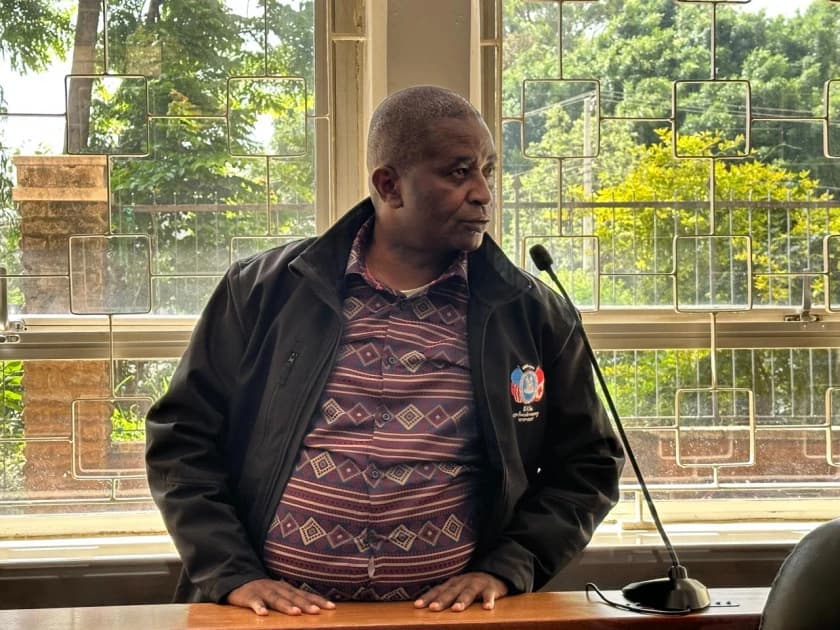We're loading the full news article for you. This includes the article content, images, author information, and related articles.
The case against Josphat Kabeabea puts a spotlight on the integrity of Kenya's lead agency in the costly war against illicit trade, a scourge draining billions from the national economy.

The chairperson of Kenya's Anti-Counterfeit Authority (ACA), Josphat Gichunge Kabeabea, was arraigned at the Milimani Anti-Corruption Court in Nairobi on Monday, November 17, 2025, facing multiple charges of bribery and abuse of office. The case, brought forward by the Ethics and Anti-Corruption Commission (EACC), has cast a harsh spotlight on the leadership of the very institution mandated to protect Kenyans from the dangers and economic damage of counterfeit goods.
Mr. Kabeabea, a former Member of Parliament for Tigania East, pleaded not guilty to five counts, including soliciting a bribe and acquiring proceeds of a crime. The prosecution, acting on recommendations from the Director of Public Prosecutions (DPP) Renson Ingonga, alleges that on or around November 11, 2025, Mr. Kabeabea demanded a KSh 5 million bribe from a foreign investor, Du Zhiseng, who was under investigation for trading in counterfeit motor vehicle spare parts. According to EACC investigators, the amount was negotiated down before a payment of approximately KSh 144,500 was allegedly sent via mobile money to a proxy. The EACC stated it had gathered evidence, including CCTV footage and witness statements, as part of its probe.
Appearing before Principal Magistrate Celesa Okore, Mr. Kabeabea was released on a KSh 2 million bond with one surety of a similar amount, or an alternative cash bail of KSh 1 million. The court ordered him to deposit his passport and barred him from interfering with witnesses or commenting on the case publicly. The matter is scheduled for a pre-trial mention in two weeks, on December 8, 2025, EAT.
The charges against the ACA's top official are deeply concerning for Kenya's prolonged struggle against illicit trade. The Anti-Counterfeit Authority, established under the Anti-Counterfeit Act of 2008, is the primary state corporation responsible for coordinating efforts to combat the trade in fake goods. Its mandate includes public education, enforcement, and promoting intellectual property rights to foster legitimate trade.
The economic stakes are immense. According to a 2025 report by the ACA, counterfeit goods drain an estimated KSh 800 billion from Kenya's economy annually, representing nearly 9% of the country's GDP. This illicit trade also results in an estimated loss of 44,000 jobs each year, undermines legitimate businesses, and deprives the government of critical tax revenue. The problem extends beyond economics, posing severe public health and safety risks. Counterfeit products are prevalent in critical sectors, including automotive parts, pharmaceuticals, electronics, and alcoholic beverages. A 2019 report from the Pharmacy and Poisons Board indicated that a significant percentage of medicines sold in Kenya could be counterfeit or substandard, leading to treatment failures and loss of life.
This high-profile case unfolds against a backdrop of persistent corruption within Kenya's public sector, a challenge that consistently undermines governance and economic development. A 2023 National Ethics and Corruption Survey by the EACC found that a majority of Kenyans perceive public officials as corrupt, with many reporting demands for bribes to access government services. Such incidents erode public trust in key institutions. An Afrobarometer survey from September 2025 noted a significant decline in public trust in the presidency and parliament over the past decade.
The fight against counterfeiting is already hampered by significant challenges, including porous borders, the rise of e-commerce platforms for illicit sales, and inadequate enforcement resources. Corruption within law enforcement and regulatory agencies further cripples these efforts, allowing criminal networks to thrive. The allegations against the ACA chairperson, if proven, would represent a profound betrayal of public trust and a significant setback for the multi-agency efforts to protect Kenyan consumers and the national economy. The outcome of this case will be closely watched as a measure of Kenya's commitment to holding high-level officials accountable and ensuring the integrity of its vital regulatory bodies.
Keep the conversation in one place—threads here stay linked to the story and in the forums.
Sign in to start a discussion
Start a conversation about this story and keep it linked here.
Other hot threads
E-sports and Gaming Community in Kenya
Active 9 months ago
The Role of Technology in Modern Agriculture (AgriTech)
Active 9 months ago
Popular Recreational Activities Across Counties
Active 9 months ago
Investing in Youth Sports Development Programs
Active 9 months ago